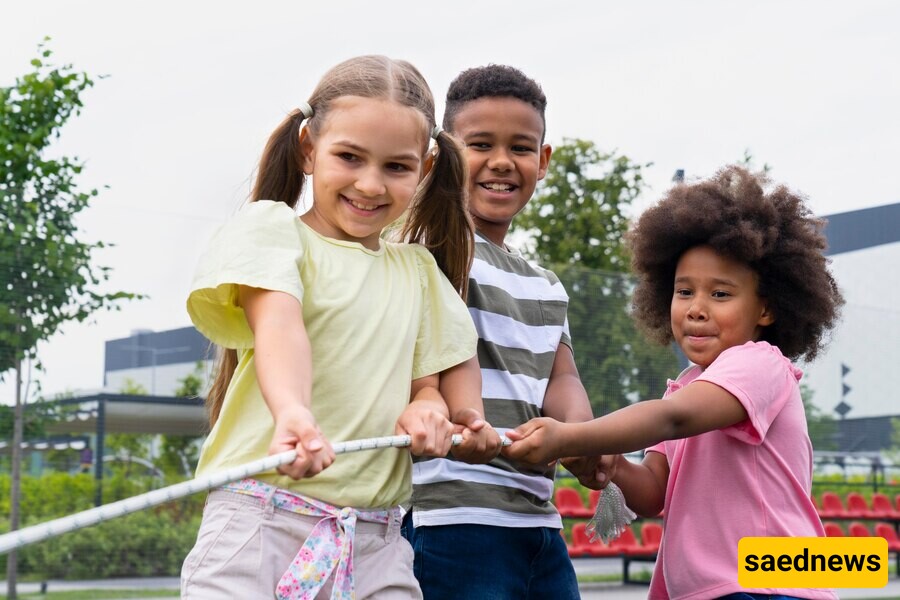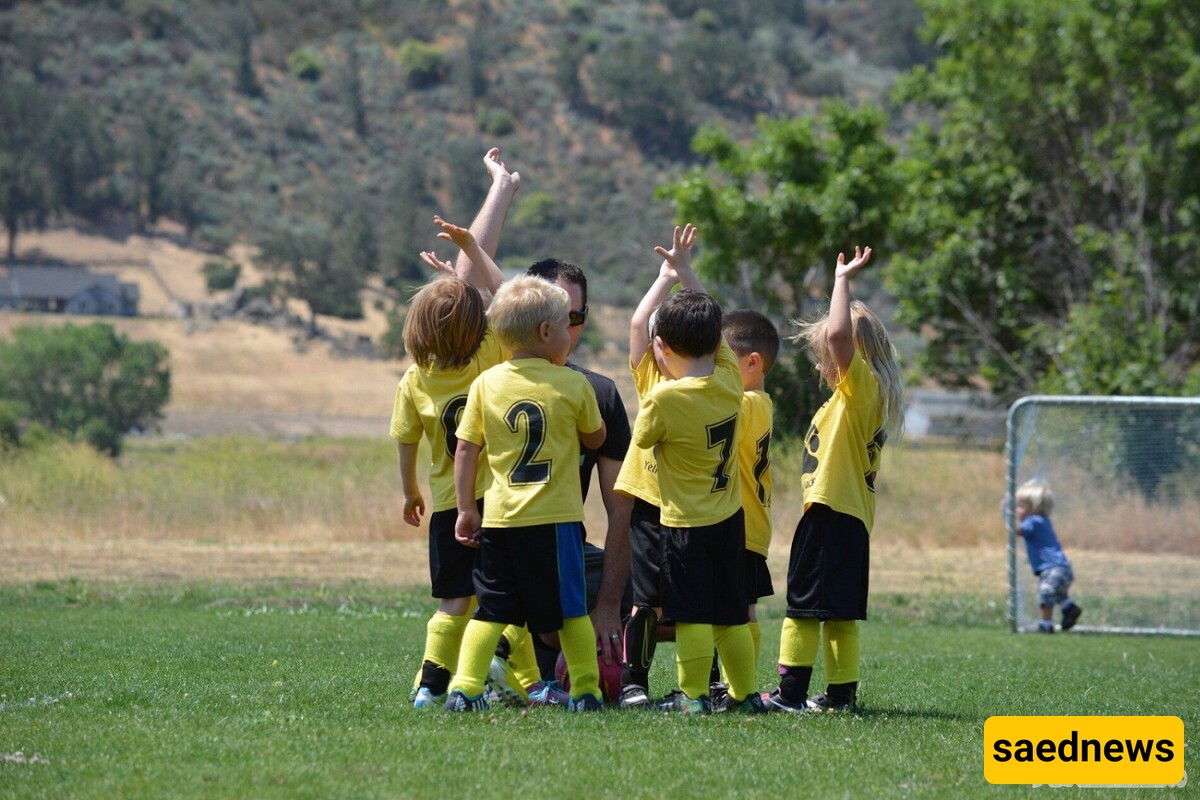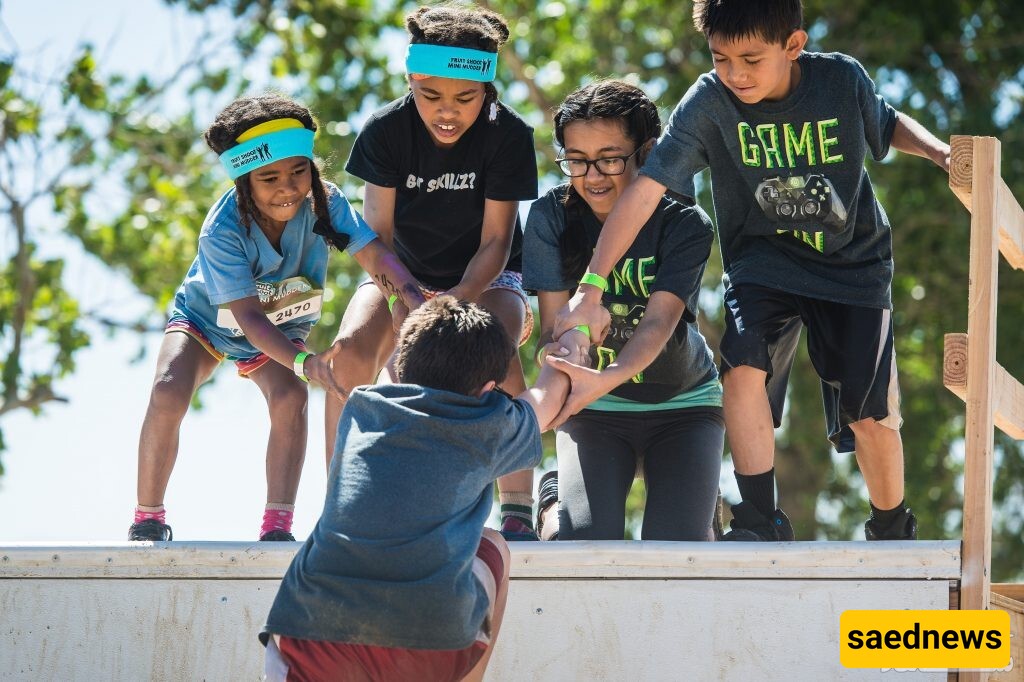If teamwork training starts at a young age, children will develop essential cognitive and social skills, allowing them to enter society with greater confidence and self-esteem. In this article, we discuss methods for fostering children's interaction and teamwork and their importance.

Teamwork enhances children's cognitive, social, and emotional skills, which are crucial for their future success. The foundation of these skills is communication. Learning teamwork at a young age paves the way for a smoother future. Here are the key reasons teamwork is essential for children:
Teamwork Teaches Essential Social Skills
Teamwork helps children learn fundamental communication skills like active listening and effective speaking.
It teaches them to follow guidance from leaders and instructors while performing their roles.
Children learn to listen to each other, ensuring cohesive group functioning.
They gain confidence in expressing their ideas and opinions respectfully in a group setting.
Teamwork Builds Empathy
Empathy is a fundamental aspect of communication.
Through teamwork, children learn to consider their teammates' needs, fostering strong bonds based on mutual respect and support.
Teamwork Improves Confidence
Knowing that their thoughts and voices are valued boosts children's confidence.
This confidence encourages greater participation in group activities, creating a self-sustaining cycle of engagement and communication.
Teamwork Reduces Bullying Among Children
Being part of a supportive team helps children withstand bullying.
A strong sense of belonging gives children a reliable support system.
Increased confidence from teamwork can empower children to stand up against bullies.
Teamwork Prepares Children for Future Success
Most careers require teamwork, making it a critical skill for future employment.
Employers prefer candidates who demonstrate the ability to work effectively as part of a team.
The first principle of teamwork is communication, which begins within the family. Parents should set an example by participating in group activities. Here are some effective ways to encourage teamwork in children:
Respect your child's opinions and actively listen to them.
Identify their talents and interests and encourage participation in related group activities.
Engage in family group activities like cooking or playing games together.
Enroll your child in schools and daycare centers that prioritize teamwork-based activities.
Teach proper group behavior, such as supporting a teammate rather than blaming them for mistakes.
Showcase examples of teamwork and analyze successful group behaviors.
Sports Teams
Group sports like soccer and volleyball are excellent ways to teach teamwork.
Being part of a team helps children develop professional teamwork behaviors.

Teaching Teamwork Through Games
Organize supervised games involving five or more children to encourage teamwork.
Examples of teamwork games:
Have children form a line in order of height or age without speaking.
Set up a scavenger hunt with clues requiring teamwork to solve.
Create obstacle courses where one child is blindfolded and guided by teammates.
Provide recyclable materials and have children build a structure together.
Ask children to write facts about themselves and have others guess who wrote what through conversation.

Social Activities
Encourage children to plant and care for a tree together.
Organize charitable activities, such as packaging school supplies for underprivileged children.
Create activities where children discuss shared interests to form natural teams.

Scientific and Research-Based Group Activities
Encourage participation in competitions like robotics, math, or music contests.
Enroll children in educational programs such as theater, where teamwork is essential.
Teach Children to Encourage Others
Urge children to cheer for their teammates in sports and celebrate their classmates' achievements.
Promote positive reinforcement by encouraging them to acknowledge others’ successes.
Foster Teamwork at Home
Assign household chores that require collaboration.
Encourage children to help siblings or grandparents.
Praise efforts to work together and emphasize teamwork's importance in family life.
Teamwork in Schools
Schools provide an excellent environment for developing teamwork skills.
Activities like group projects, debates, and sports help children experience real teamwork dynamics.
A good teacher or coach can significantly influence a child’s ability to work in teams.
Working in a team is not always easy—disagreements and personality conflicts arise. However, these challenges help children develop problem-solving skills and shape their character. Practicing these teamwork techniques with your children will help them master collaboration, preparing them for success in both personal and professional life.

